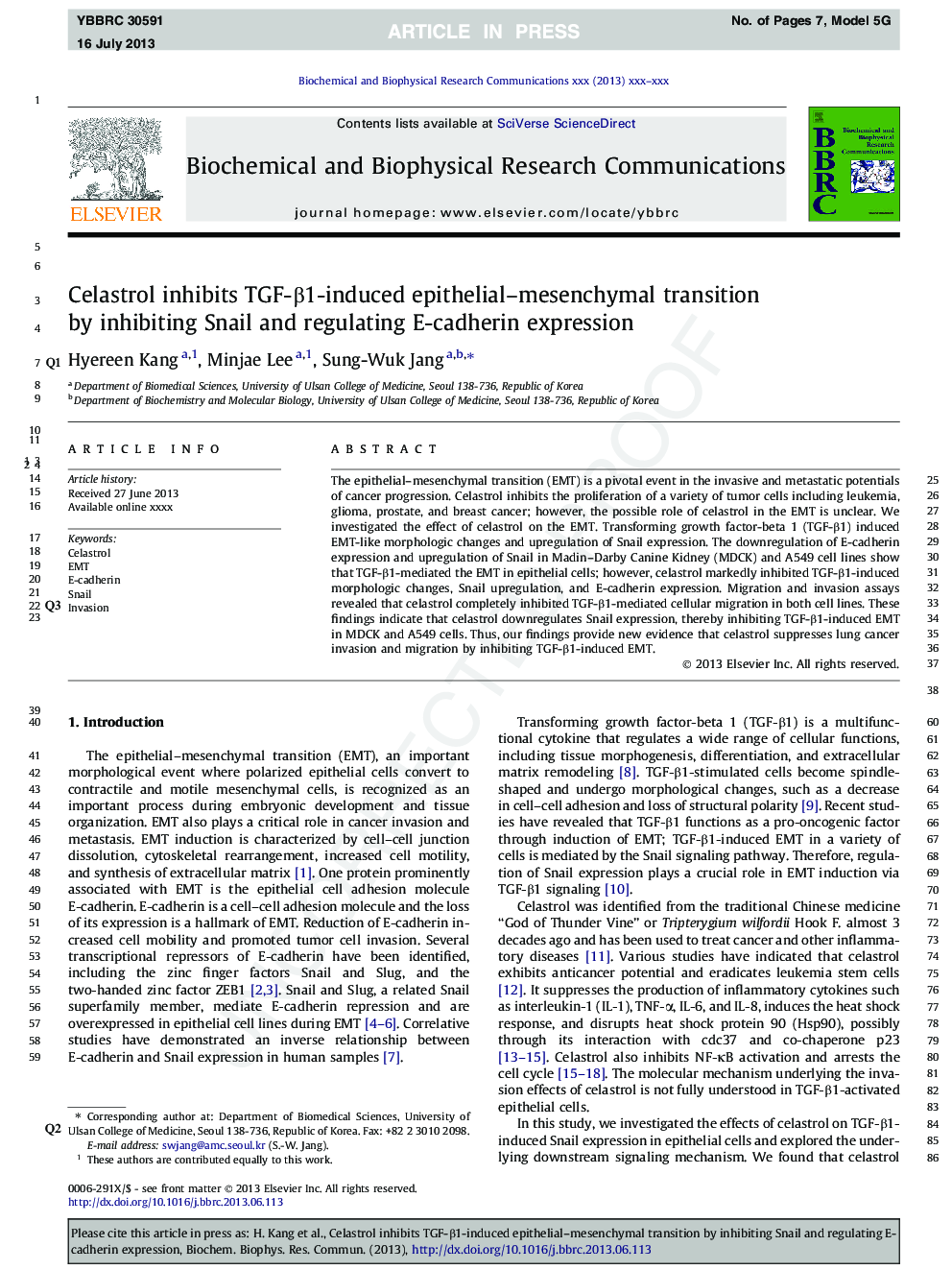| Article ID | Journal | Published Year | Pages | File Type |
|---|---|---|---|---|
| 10758557 | Biochemical and Biophysical Research Communications | 2013 | 7 Pages |
Abstract
The epithelial-mesenchymal transition (EMT) is a pivotal event in the invasive and metastatic potentials of cancer progression. Celastrol inhibits the proliferation of a variety of tumor cells including leukemia, glioma, prostate, and breast cancer; however, the possible role of celastrol in the EMT is unclear. We investigated the effect of celastrol on the EMT. Transforming growth factor-beta 1 (TGF-β1) induced EMT-like morphologic changes and upregulation of Snail expression. The downregulation of E-cadherin expression and upregulation of Snail in Madin-Darby Canine Kidney (MDCK) and A549 cell lines show that TGF-β1-mediated the EMT in epithelial cells; however, celastrol markedly inhibited TGF-β1-induced morphologic changes, Snail upregulation, and E-cadherin expression. Migration and invasion assays revealed that celastrol completely inhibited TGF-β1-mediated cellular migration in both cell lines. These findings indicate that celastrol downregulates Snail expression, thereby inhibiting TGF-β1-induced EMT in MDCK and A549 cells. Thus, our findings provide new evidence that celastrol suppresses lung cancer invasion and migration by inhibiting TGF-β1-induced EMT.
Keywords
Related Topics
Life Sciences
Biochemistry, Genetics and Molecular Biology
Biochemistry
Authors
Hyereen Kang, Minjae Lee, Sung-Wuk Jang,
